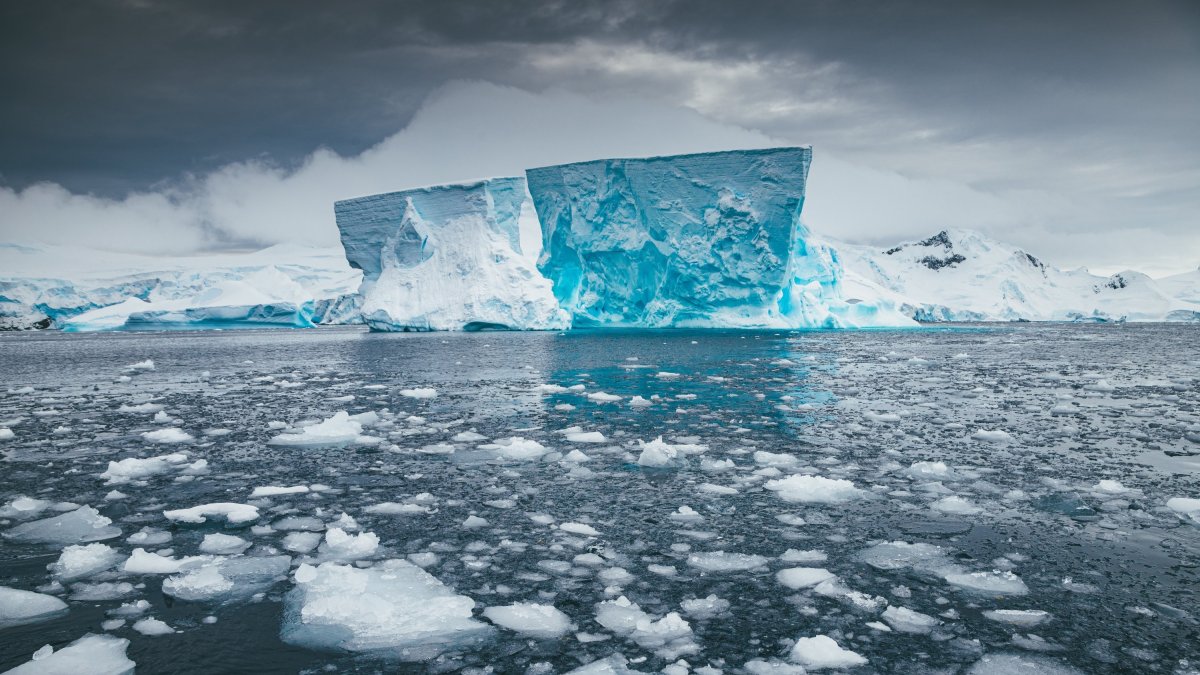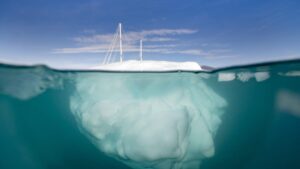The world’s strongest ocean current could slow as melting Antarctic ice sheets flood it with fresh water, according to research published on Monday that warned of “severe” climate consequences.
Scientists used one of Australia’s most powerful supercomputers to model how melting ice sheets might change the Antarctic Circumpolar Current, which plays a major role in global climate patterns.
If fossil fuel emissions increased over the next 25 years – a so-called high emissions scenario – the current could slow by around 20%, the peer-reviewed research found.
“The ocean is extremely complex and finely balanced,” said University of Melbourne scientist Bishakhdatta Gayen.
“If this current ‘engine’ breaks down, there could be severe consequences, including more climate variability – with greater extremes in certain regions and accelerated global warming due to a reduction in the ocean’s capacity to act as a carbon sink.”
The Antarctic Circumpolar Current acted as a kind of “ocean conveyor belt” shifting immense columns of water through the Indian, Atlantic and Pacific Oceans, Gayen said.
Melting ice sheets would “dump vast quantities of fresh water” into the current, the modeling found.
This would change the ocean’s salt content, making it harder for cold water to circulate between the surface and the depths.
Oceans play vital roles as climate regulators and carbon sinks.
Cooler waters can absorb greater amounts of heat from the atmosphere.
The strength of the current, which flows clockwise around Antarctica, also acts as a barrier that prevents invasive species from washing up on the continent’s shores.
The researchers wrote that algae and mollusks could more easily colonize Antarctica if the current slowed down.
Even if global warming was limited to a threshold of 1.5 degrees Celsius (2.7 degrees Fahrenheit), the Antarctic current could still slow down.
“The 2015 Paris Agreement aimed to limit global warming to 1.5 degrees Celsius above pre-industrial levels,” said climate scientist and co-author Taimoor Sohail.
“Many scientists agree that we have already reached this 1.5 degree target and it is likely to get hotter, with flow-on impacts on Antarctic ice melting.”
The research team, which included scientists from Australia, India and Norway, noted that their findings contrasted with previous studies that observed the current speeding up.
They said further observation and modeling were needed to understand how the “poorly observed region” responded to climate change.
The research was published in the Environmental Research Letters journal.




















































Be First to Comment